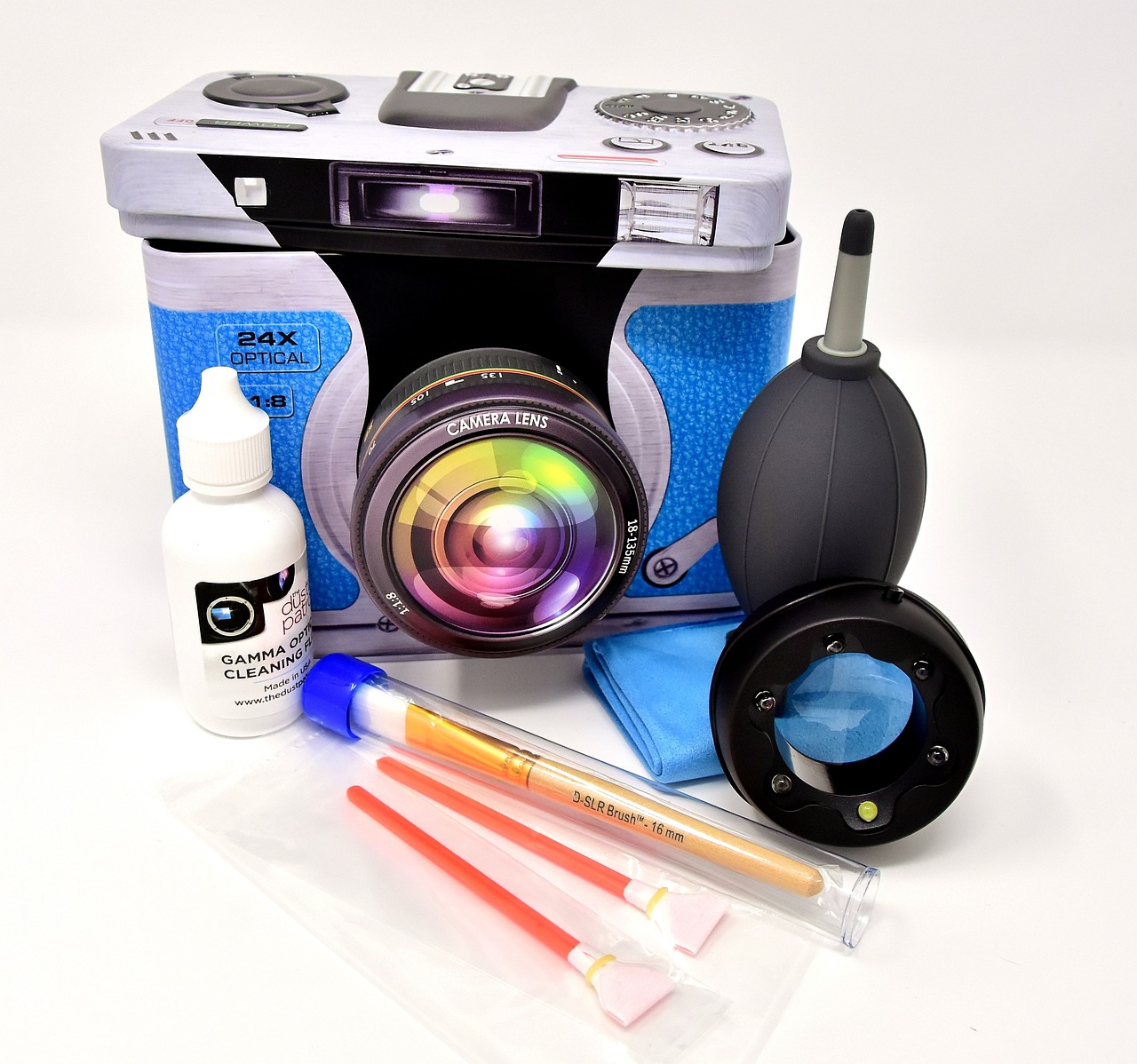
How to Properly Care for and Maintain Your Digital Camera
Digital cameras are valuable tools for capturing life's moments, whether you're a professional photographer or an enthusiastic hobbyist. However, maintaining and caring for your camera is crucial to ensuring it performs optimally and lasts for years to come. In this comprehensive guide, we’ll cover everything you need to know about properly caring for and maintaining your digital camera, from cleaning and storage to handling and regular maintenance.
1. Understanding Your Camera: The Basics of Care
Before delving into specific care tips, it's essential to understand your camera’s components and how they work. Digital cameras generally comprise the following key parts:
- Lens: The lens captures light and focuses it on the camera sensor.
- Sensor: This electronic component converts light into electrical signals to create images.
- Shutter: The shutter controls how long light hits the sensor.
- Viewfinder/Screen: The viewfinder or LCD screen helps you compose your shots.
- Battery and Memory Card: These power the camera and store your photos.
Understanding these parts will help you care for your camera properly. Each component has unique maintenance needs that will keep your camera in optimal working condition.
2. General Handling Tips for Your Digital Camera
Proper handling of your camera is critical to its longevity and performance. Here are some tips for handling your digital camera with care:
2.1. Always Use a Strap
When shooting, always use the camera strap. This helps prevent accidental drops and impacts. It’s a small but effective way to protect your investment.
2.2. Be Mindful of Your Environment
Environmental factors such as dust, moisture, and extreme temperatures can negatively impact your camera. Always be cautious when shooting in:
- Dusty Areas: Dust can accumulate in your camera and lens, potentially affecting image quality.
- Moist Conditions: Humidity and rain can cause internal damage. Use weather-sealed gear when possible, or use rain covers if you anticipate wet conditions.
- Extreme Temperatures: Avoid exposing your camera to extreme cold or heat. Rapid temperature changes can cause condensation, which may damage sensitive electronics.
2.3. Avoid Touching the Lens and Sensor
Fingerprints and smudges can lead to poor image quality. Always avoid touching the lens and, if possible, the sensor. Use a lens cap when not shooting, and if you need to change the lens, do so in a clean, dust-free environment.
3. Regular Cleaning: Keeping Your Camera Spotless
Cleaning your digital camera is an essential part of maintenance. Regular cleaning can enhance image quality and prolong the life of your camera. Here’s how to do it effectively:
3.1. Cleaning the Lens
Tools Needed:
- Microfiber cloth
- Lens cleaning solution
- Lens brush
Steps:
- Remove Dust and Debris: Use a lens brush or a blower to remove any loose dust or dirt from the lens surface.
- Apply Cleaning Solution: Lightly moisten a corner of a microfiber cloth with lens cleaning solution (never apply directly to the lens).
- Wipe Gently: Using a circular motion, gently wipe the lens surface until clean. Avoid applying too much pressure.
3.2. Cleaning the Sensor
Cleaning the sensor requires more care. It's advisable to have this done by a professional, but if you're comfortable doing it yourself, follow these steps:
Tools Needed:
- Sensor cleaning swabs
- Sensor cleaning solution
Steps:
- Check for Dust: Take a test shot of a plain white surface at a small aperture (f/16 or higher) to see if dust is present.
- Prepare the Camera: Turn off the camera and remove the lens. Activate the sensor cleaning mode (check your manual for instructions).
- Use Swabs: Moisten a swab with the sensor cleaning solution and gently swipe it across the sensor. Follow the instructions that come with the cleaning kit for best results.
3.3. Cleaning the Body
Tools Needed:
- Microfiber cloth
- Compressed air (optional)
Steps:
- Wipe Down the Body: Use a dry microfiber cloth to wipe the camera body, removing any fingerprints or dirt.
- Remove Dust from Crevices: Use compressed air to blow dust out of buttons and crevices, but be careful not to get too close to avoid moisture or damage.
4. Storage: Protecting Your Camera When Not in Use
Proper storage of your camera is vital when you’re not using it. Here are some essential tips for storing your digital camera:
4.1. Use a Dedicated Camera Bag
Invest in a quality camera bag that offers padding and protection. A good camera bag protects your gear from bumps, dust, and moisture. Look for bags with customizable compartments to fit your camera and lenses securely.
4.2. Remove the Battery and Memory Card
If you plan to store your camera for an extended period, it’s wise to remove the battery and memory card. Batteries can leak over time, causing damage to your camera. Store them separately in a cool, dry place.
4.3. Store in a Cool, Dry Place
Extreme temperatures and humidity can damage electronic components. Store your camera in a cool, dry environment, ideally between 20-25°C (68-77°F) with low humidity. Consider using silica gel packets to absorb excess moisture.
4.4. Use a Lens Cap and Body Cap
Always put a lens cap on when the camera is not in use to protect the glass from scratches. Similarly, if you remove the lens, use a body cap to protect the camera sensor from dust and debris.
5. Battery Care: Maximizing Battery Life
Taking care of your camera battery is essential for optimal performance. Here are some tips:
5.1. Charge Properly
- Use the Right Charger: Always use the charger that came with your camera or a certified replacement. Using third-party chargers can damage the battery.
- Avoid Overcharging: Unplug the charger once the battery is fully charged to prevent overcharging, which can shorten battery life.
5.2. Store Batteries Correctly
- Keep in a Cool, Dry Place: Just like your camera, batteries should be stored in a cool, dry location to maintain their longevity.
- Partially Charge Before Storing: If you won’t be using the battery for a while, charge it to about 50% before storing it. This helps maintain battery health.
5.3. Regularly Use Your Battery
Batteries can degrade if not used for long periods. Try to use your camera regularly, and cycle through multiple batteries if you have them to keep them healthy.
6. Software Updates: Keeping Your Camera Current
Digital cameras, especially mirrorless and DSLRs, often receive firmware updates that enhance functionality, improve performance, and fix bugs. Here’s how to keep your camera updated:
6.1. Check for Updates Regularly
- Visit the manufacturer’s website periodically to check for firmware updates. Many companies also have dedicated applications that will notify you of updates.
6.2. Follow Update Instructions
- Carefully follow the manufacturer’s instructions for updating the camera’s firmware. This often involves downloading the update onto an SD card and installing it in the camera.
7. Common Problems and Solutions
7.1. Dust on Images
If you notice spots or dust in your images, it may be time to clean the sensor. Follow the sensor cleaning instructions outlined earlier.
7.2. Battery Not Charging
If your battery isn't charging, ensure the charger is functioning correctly and that you're using the correct charger for your battery. If the problem persists, the battery may need to be replaced.
7.3. Error Messages
If your camera displays error messages, consult the user manual for troubleshooting steps. Common errors may require resetting the camera or formatting the memory card.
8. Conclusion: Caring for Your Digital Camera
Caring for your digital camera is essential to ensuring it performs optimally and lasts for years. By following these tips on handling, cleaning, storage, battery care, and software updates, you can keep your camera in excellent condition, ready to capture your next adventure.
Whether you’re a seasoned professional or a casual photographer, maintaining your camera is a worthwhile investment. Remember that a well-cared-for camera not only improves your photography but also enhances your overall experience behind the lens. So, take the time to care for your gear, and it will reward you with countless beautiful images for years to come!
